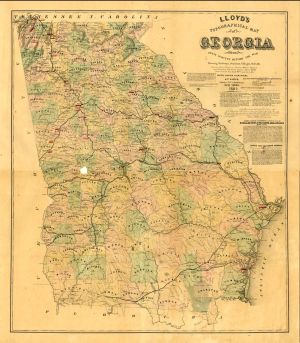 With Atlanta safely in Union hands and victory over the Confederacy much more likely, the Lincoln administration can turn its attention to non-battlefield matters that may further assist a successful conclusion of the long war with the South.
With Atlanta safely in Union hands and victory over the Confederacy much more likely, the Lincoln administration can turn its attention to non-battlefield matters that may further assist a successful conclusion of the long war with the South.
One of those matters is that of economics. And more specifically, the official ban on the trading of commodities between North and South.
The reality, as is often the case, is a bit different than the policy.
The long-running Union ban on cross-border commerce has served to drive up the price of cotton, the stable of the South. When prices of a given commodity are high, persons of means and connections inevitably find a way to exploit laws and make a tidy profit. Such is the case with cotton.
In short, Southern cotton in significant quantities has been making its way North on the black market, utilizing the Mississippi River and her tributaries as the means of transportation. United States officials have been unable, or unwilling, to put a stop to this highly profitable trafficking. Today, however, the Lincoln administration convenes a cabinet meeting in Washington to discuss the possible legalization of the cotton trade in order that the government can at least collect tax revenue, rather than losing out entirely on the cotton market.
President Lincoln is receptive to the re-opening of the cotton trade, and with his blessing official transactions between North and South are ultimately resumed to a limited degree. Nonetheless, the economic merits of opening the cotton market across-the-lines is debatable in the months to come, as the Confederacy falls apart militarily.
Meanwhile, white Southern Baptist elites–even in the now-beleaguered state of Georgia–are not about to give up in the war with the United States. An editorial in today’s Georgia Baptist Christian Index heaps praise upon Confederate soldiers and voices confidence of victory over the North. In prompting bested and weary soldiers to fight on, the author not-so-subtly plays a tempting card: defeating the North will win soldiers the appreciation of white Southern women.
It is impossible to calculate all the happiness, comfort, safety, dignity, honor, glory, wealth and prosperity that hang upon the courage, discipline, constancy and self-sacrificing patriotism of those noble veterans that compose our army. To them we look for all of safety, fidelity and national independence that a nation can enjoy; and we look in confidence. Their past renown, bravery and unflinching fortitude, which, from a “Rebel district” (in the eyes of the world), has reared our Confederacy to the proud position of a gallant and heroic people struggling valiantly and successfully against overpowering odds for their rights, will, we feel convinced, yet achieve for us such splendid triumphs and fruitful victories, as will blast the hopes and blight the efforts of our vindictive and savage foes. These heroes have met reverses, but never yet overwhelming defeat; and, backed as they are by their own glowing patriotism, by their indomitable valor, by their contempt of danger and hardship, and by the admiring and confiding love of countrywomen, we know they never will submit to a disastrous defeat. God bless them! They deserve all and more than all that fair woman is doing for them–ah, more than all, that citizens may effect for their benefit.
Let us make sacrifices for them–consult their comforts–relieve their wants–care for their families, and, from all quarters of the land, send up to them words of comfort, encouragement and confidence. And now is the time to manifest our interest–now, when from long labor, continued fighting, excessive marching and short rations, they are weary, sick, wounded or dispirited. Courage, brave men! Loving, trusting eyes are gazing upon you; hopeful bosoms heave with confiding emotions when glowing tidings of your heroic daring are given; a nation–your own beloved country–has placed its safety, honor and existence in your hands; and when, hereafter, from the glorious light of national independence and renown, it can look back upon a bleeding, struggling, valor, which achieved such lustrous distinction, it will be upon your valor that it will gaze, and to you will be ascribed the honor of achieving for your land such resplendent glory.
Sources: “The Lincoln Log,” September 9, 1864 (link); David G. Surdam, “Traders or Traitors: Northern Cotton Trading During the Civil War,” Business & Economic History, Winter 1999, Vol. 28 Issue 2, pp 299-310 (link); “Our Army,” Christian Index, September 9, 1864


